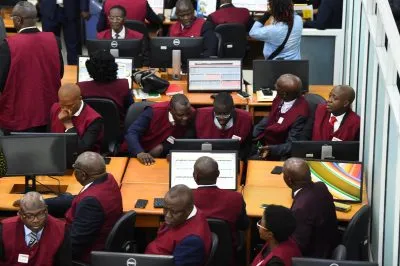In April this year global French investment bank Société Générale announced that it had reached a deal to sell its Moroccan businesses, Société Générale Marocaine de Banques and its subsidiaries, as well as La Marocaine Vie, an insurance company the bank owned. Both businesses were purchased by the Casablanca-based firm Saham Group.
When announcing the agreement, Société Générale said that “this divestment project is part of the execution of Société Générale’s strategic roadmap presented in September 2023, targeting a more streamlined, more synergetic, and efficient business model, while strengthening the Group’s capital base.” The move followed earlier decisions to sell off its stakes in other African subsidiaries, such as its 52.34% ownership in Tunisia-based Union Internationale de Banques.
The sale of Société Générale’s Moroccan businesses comes at a time when many other French banks are taking similar steps to exit the African market.
At the start of May, BNP Paribas, the biggest bank in the eurozone, announced that it would no longer offer corporate and investment banking services in South Africa as part of its efforts to consolidate its European and Asian businesses and focus on core markets. The French bank has also sold its subsidiaries in Burkina Faso, Mali, Guinea, Senegal, Tunisia, and Côte d’Ivoire.
Crédit Agricole is another French bank that has wound down its interests in Africa. In April 2022 the bank confirmed that it had sold its 78.7% stake in its subsidiary Crédit du Maroc to the Moroccan firm Groupe Holmarcom. It has since been reported that the French bank has instructed the financial advisory firm Lazard to start looking for potential buyers for its companies in Tunisia, Cameroon, and Ghana.
Jamal El Mellali, Fitch Ratings’ director covering African banks, says that “French banks have been gradually exiting Africa to refocus on areas where they have competitive strengths and in countries where operating conditions are more in line with their risk appetite.”
“African markets are higher risk and the level of returns of their subsidiaries, from the French banks’ perspective, are often not enough to justify their presence there,” El Mellali adds.
It is certainly the case that banks operating in Francophone West Africa and the Sahel, where French banks have tended to be the most prominent, have become exposed to an increasing number of risks in recent months.
For example, in February, Fitch Ratings warned that the exits of Burkina Faso, Mali, and Niger from the ECOWAS bloc following coups “could have a significant adverse impact on their economies” and could lead to higher trade tariffs in turn leading to higher inflation, as well as disruption to supply chains and capital flows.
Fitch Ratings suggested that this could lead to greater numbers of non-performing loans and increased pressure on the balance sheets of banks operating in the region.
Profits down, costs up
More widely, the declining profitability of African banks is a longer-term trend, regardless of the increasing geopolitical and economic tensions that are putting further pressure on their balance sheets. As McKinsey has pointed out, since 2016 profitability in Africa’s five biggest banking markets – Egypt, Kenya, Morocco, Nigeria, and South Africa – have decreased by an average of 2%.
While short-term profits are likely to have been boosted in the last two years, owing to an environment of higher interest rates, the wider picture is that African banks are facing declining fee margins because of increased competition and the increasing prominence of fintech companies that are able to provide similar services to consumers and businesses for lower fees.
Analysis from McKinsey also shows that “banks in most African markets have high cost-to-income ratios, along with low banking penetration, compared with benchmark emerging markets in the Middle East, Eastern Europe, Southeast Asia, and Latin America.”
M’khuzo Mwachande, an investment banker in Cape Town, suggests that higher compliance costs are also cutting into banks’ profits in Africa. “One significant reason for French banks exiting the African market is the escalating cost of compliance,” he says.
“The stringent regulatory requirements they are subject to, particularly in areas such as anti-money laundering (AML) regulations, impose substantial financial burdens on banks operating on the African continent,” Mwachande adds.
Paying for new rules
This declining profitability poses a particular problem for French banks because international regulators are increasingly forcing financial institutions to strengthen their capital reserves. Following the global financial crisis of 2008, the Bank for International Settlements (BIS) started working on “Basel III” reforms that are intended to improve regulation, supervision, and risk management in global banking.
The central idea is to improve capital buffers – which under Basel III will need to stand at 2.5% of total risk-weighted assets plus 4.5% of liquid bank holdings – to ensure that banks are better positioned in the future to handle any shocks or crises. Banks have been implementing these measures since 2017 but the regulations take effect in mid-2025.
It appears that increasing numbers of French banks have come to the conclusion that asset sales in Africa are one way to raise the additional capital needed to comply with the Basel III regulations – particularly given they are facing declining profitability and higher African banking markets in any case.
El Mellali believes that the exit of French banks from the African market could lead to some short-term difficulties but will ultimately be positive for the continent’s domestic banking scene.
“The exit of strong foreign shareholders could make access to the global financial system and correspondent banks more difficult for African institutions being divested,” El Mellali tells African Business. “This could potentially cause some disruptions in cross-border remittances, payments, and trade finance activities. In many sub-Saharan markets, where foreign exchange liquidity is tight, it could also make access to hard currencies more difficult without the foreign exchange liquidity lines that French parent banks typically provide to support trade finance activities.”
Mwachande says that “as French banks often play a significant role in providing liquidity, the sudden absence of such institutions could strain the banking sector, leading to potential liquidity shortages and disruptions in the flow of funds within the economy.”
Regulators need to act
“African regulators will need to swiftly address issues related to correspondent banking arrangements to ensure seamless activity. Without robust correspondent banking relationships in place, African businesses may encounter difficulties in conducting international transactions, which could hamper trade and economic growth.” While some short-term disruption is to be expected, both El Mellali and Mwachande are confident that this could ultimately be a positive development for Africa’s domestic banking market. Indeed, El Mellali says that the gap left by French banks’ withdrawal could “provide significant opportunities for local and regional banks in Africa.”
There have already been some signs of this starting to happen. In December last year Standard Chartered announced the sale of its consumer banking business in Côte d’Ivoire to Ouagadougou-based Coris Bank. The bank has also agreed deals to take over all the Société Générale operations in Chad and Mauritania.
“Some banking groups with pan-African ambitions, such as Coris Bank International or Vista Bank, which have been acquiring subsidiaries from French banks, should eventually gain enough scale to compete with the already well-established institutions,” El Mellali says. “There is a significant addressable market that has been untapped by French banks due to stringent lending standards, which will provide a strong growth avenue for African banks.”
In turn, this could improve the quality and scope of banking services offered to African consumers. Mwachande points out that “the departure of French banks could prompt local African banks to innovate, particularly in addressing the unique needs of African consumers when it comes to things such as Know Your Customer (KYC) protocols.”
“International banks have historically struggled in Africa because they tend to apply Western banking standards and products without adequately understanding the local market. The KYC requirements, which mandate formal identification, proof of address, and proof of income, present significant obstacles for many Africans,” he explains. “With a substantial portion of the population lacking formal identification and engaged in informal employment, adherence to strict KYC standards excludes many from the formal banking sector.
“However, the exit of international banks presents an opportunity for African banks to innovate in addressing KYC challenges. Instead of rigidly adhering to conventional documentation requirements, African banks could explore alternative approaches tailored to local realities.”
Opportunities for domestic banks
An approach more tailored to conditions on the ground could help encourage the banks to be less conservative in offering products such as loans, and free up more capital for investment, Mwachande suggests. “African banks could end up better serving both the formal and informal sectors of the economy – and this could lead to increased access to credit for growing businesses, stimulating entrepreneurship and economic development across the continent.”
El Mellali is also confident that, long-term, local banks will prove better positioned to service the needs of local populations, particularly small and medium-sized businesses.
“We expect to see higher financial inclusion and better access to financial services across Africa, as African banks will target some of the segments that were not for French banks’ subsidiaries due to a more stringent risk appetite,” he says. “Small and medium sized enterprises, whose access to credit is often limited, will be one of the beneficiaries.”
Want to continue reading? Subscribe today.
You've read all your free articles for this month! Subscribe now to enjoy full access to our content.
Digital Monthly
£8.00 / month
Receive full unlimited access to our articles, opinions, podcasts and more.
Digital Yearly
£70.00 / year
Our best value offer - save £26 and gain access to all of our digital content for an entire year!

 Sign in with Google
Sign in with Google 



